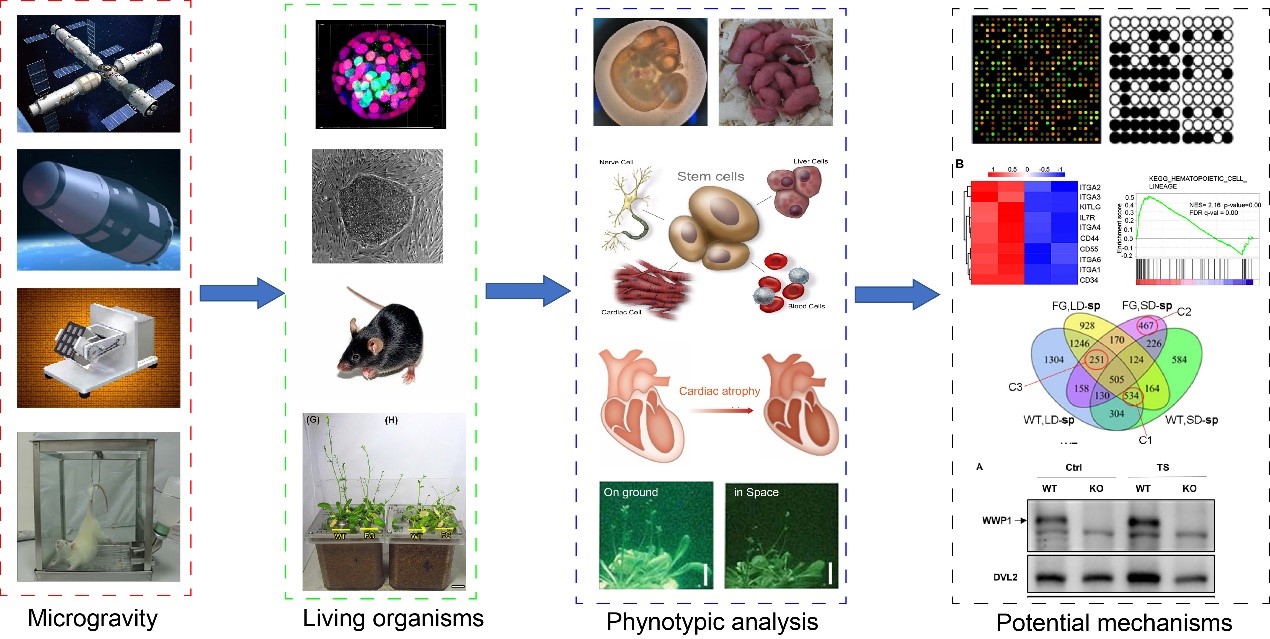Effect of Microgravity on Embryonic Development, Cell Growth and Differentiation: Experiments from Ground to Space
Date:24-06-2022 | 【Print】 【close】
It is an ambitious goal for human beings to realize the long-term survival and development of life beyond planet Earth. However, living organisms are inevitably exposed to a prolonged state of microgravity during spaceflight, which can trigger a series of responses to the growth and development of life at various levels from the molecular to the cellular and the whole organism.
Recently, a guest editorial team led by Dr. LEI Xiaohua from the Shenzhen Institute of Advanced Technology (SIAT) of the Chinese Academy of Sciences has finalized a study entitled "Editorial: the regulating mechanisms of development, growth, and metallurgy: from ground to space".
The article was published in Frontiers in Cell and Developmental Biology on June 15.
The topic of this special issue is to investigate the impact of the microgravity environment, in particular ground-based simulation-platform microgravity, on the development, cell proliferation and differentiation of living organisms at a molecular, cellular and individual level.
The articles cover contents related to space life sciences including stem cells, cancer cells, and plant/animal growth in space or simulated microgravity (SMG). These studies highlight the molecular mechanisms with which these organisms respond and adapt themselves to the microgravity environment.
The team has investigated the effect of microgravity on the hematopoietic differentiation of human embryonic stem cells (hESCs). The authors found that SMG helps hESCs differentiate into hemogenic endothelium progenitors (HEPs) and hematopoietic stem/progenitor cells (HSPC). They also observed that SMG supports the formation of 3D hematopoietic clusters. Mechanistically, SMG upregulated the key hematopoiesis-related gene expression and enriched the key metabolic pathways, including angiogenesis, Heme metabolism, glycolysis, and oxidative phosphorylation.
"Microgravity is not always disadvantageous to the growth, differentiation and development of living organisms, while sometimes microgravity might play a potential role in supporting 3D cell growth, maintenance of stemness in stem cells or specific differentiation of certain types of stem cells," said Dr. LEI.
The purpose of editing this special issue is to share the new research results of space life science in China with international counterparts in a timely and centralized manner. In addition, it is hoped that the publication of this special issue will increase the exchanges and cooperation with peers, and expand China's international influence in related fields.

Effect of microgravity on embryonic development, cell growth and differentiation: experiments from ground to space. (Image by SIAT)
Media Contact:
ZHANG Xiaomin
Email:xm.zhang@siat.ac.cn